Listening and learning from communities
The importance of an inclusive approach to achieving water security
17 December 2023
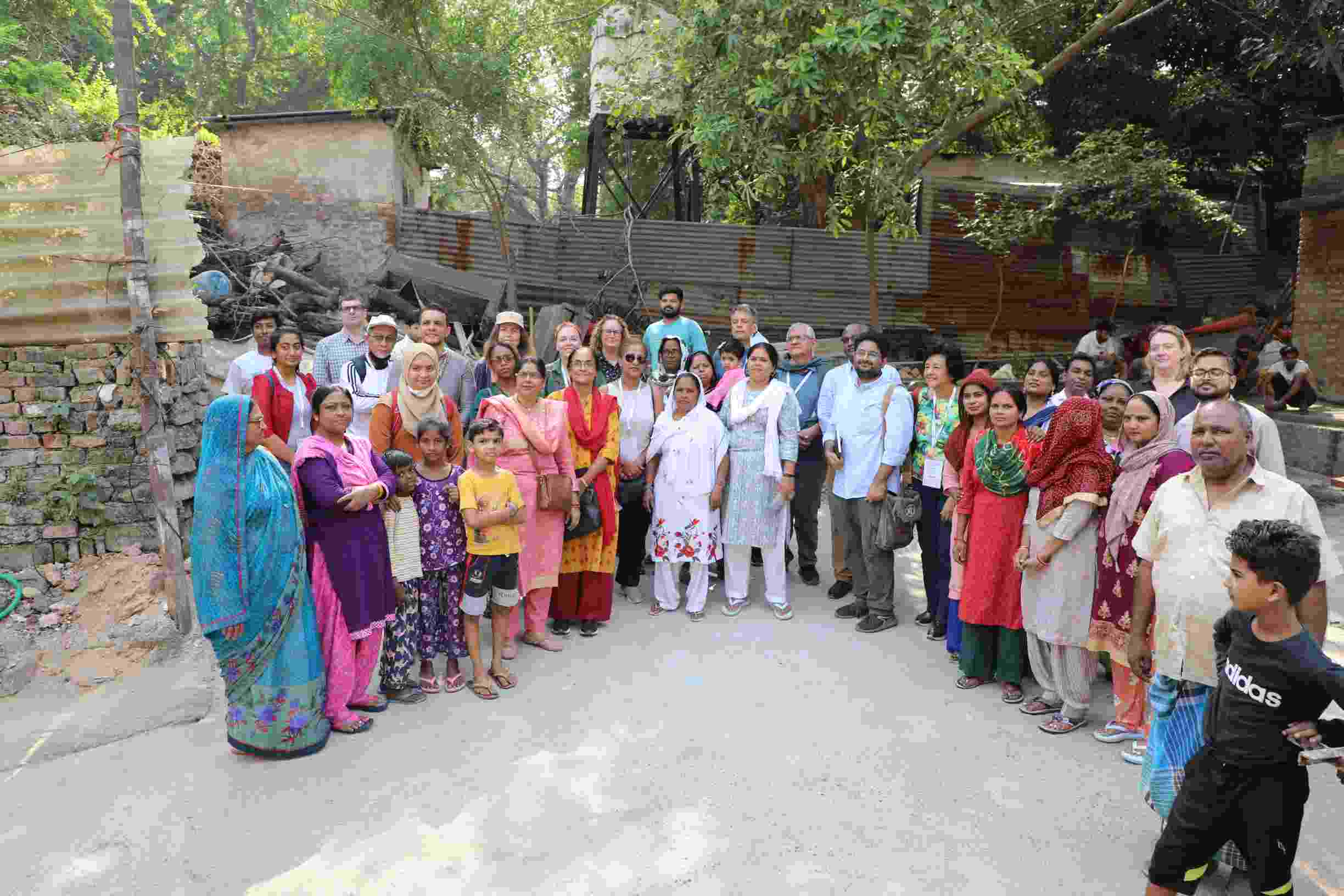

Colleagues hear from communities during the Hub Assembly
It is our most vulnerable communities and societies around the world that feel the impacts of climate change the most. Weather patterns are changing, and extreme events are increasing in intensity, duration, and frequency, exacerbating key issues that underpin social inequity, like poor infrastructure, gaps in governance, and inadequate WASH services The resulting combination of risks means that marginalised communities are repeatedly hit the hardest, despite contributing the least to global emissions and the acceleration of climate change.
As we strive to find solutions around the world to both mitigate and adapt to climate change, and ways of improving our resilience, we must ensure that we do so in an inclusive manner. The Hub is committed to being an active agent, ensuring that all voices are heard by connecting all stakeholders together as equals and providing an equitable space where all can contribute, particularly those who are regularly underrepresented.
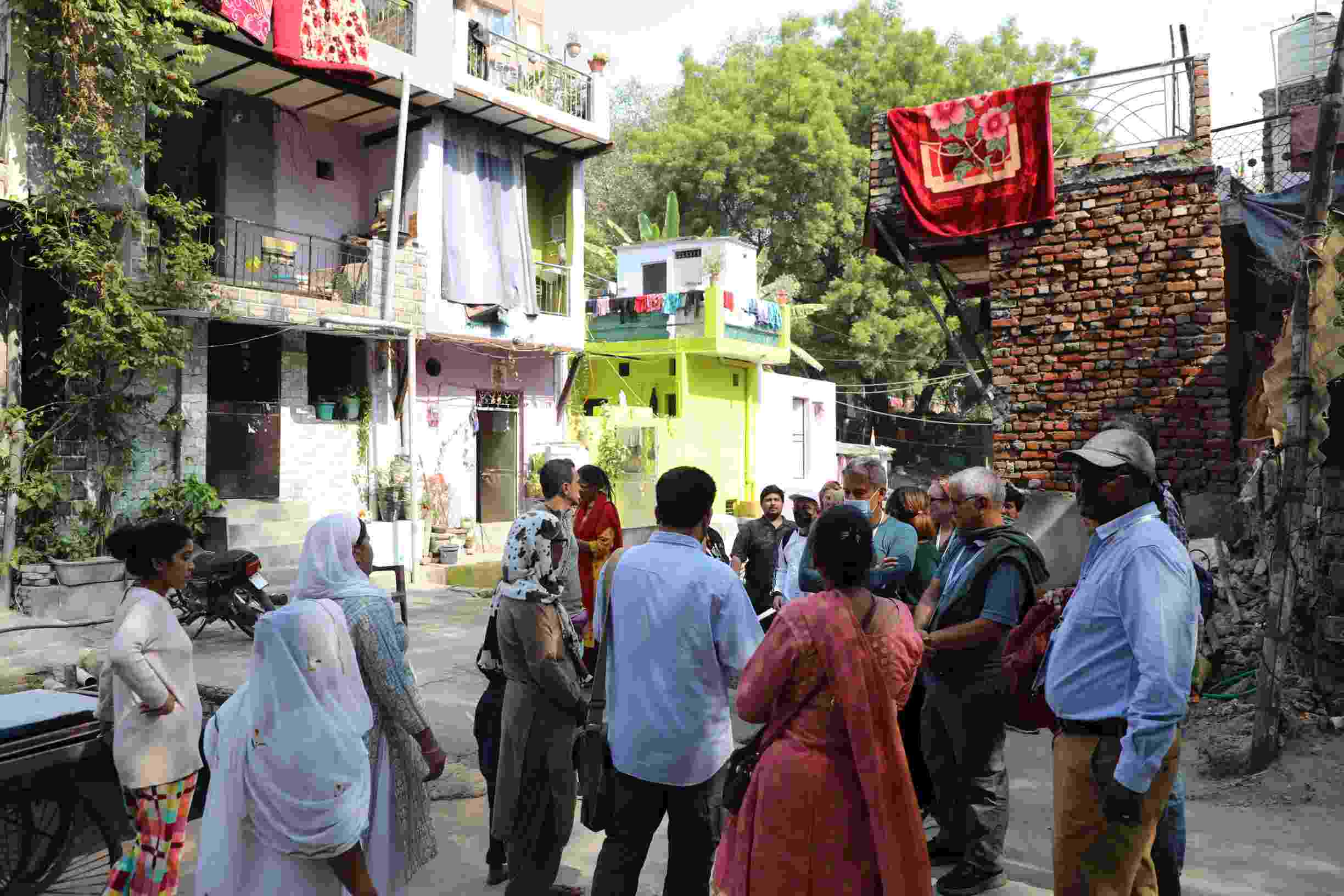

Janya Collective explaining local challenges
Our partners, Janya Collective, are a social enterprise based in Delhi whose work centres on facilitating and strengthening urban communities, promoting inclusive urban governance. The Hub has been working with Janya Collective to increase the role and representation of local communities in water resource management in Delhi.
How our cities are built directly contributes to economic and urban health outcomes, and as we develop our water sensitive planning (WSP) approach, we are working with Janya Collective to embed community input. Janya Collective has also been working very closely with our KATS team to deliver a community education programme, increasing understanding and awareness amongst children on water security and climate change, helping them to become climate activists.
During the November 2023 Hub Assembly in Delhi, Janya Collective led a visit to communities living in the Ambedkar, Hanuman, Nehru Ekta, Indra Kalyan Vihar, and Madrasi Camps, informal settlements situated near or alongside the Barapullah drain. As informal, unplanned settlements, the camps are not equipped with connections to the city’s managed water supply, sewer lines, or waste disposal services, meaning the open drains the communities live by become increasingly polluted and hazardous. High air pollution levels and cramped conditions, with buildings clustered close together, pose a risk to human physical and mental health. Heatwaves and cold spells reveal the inadequacy of building materials used throughout the camps, while intense rainfall leads to the destruction of property and livelihoods, and an extreme health risk as inadequate sanitation facilities are flooded and overrun.
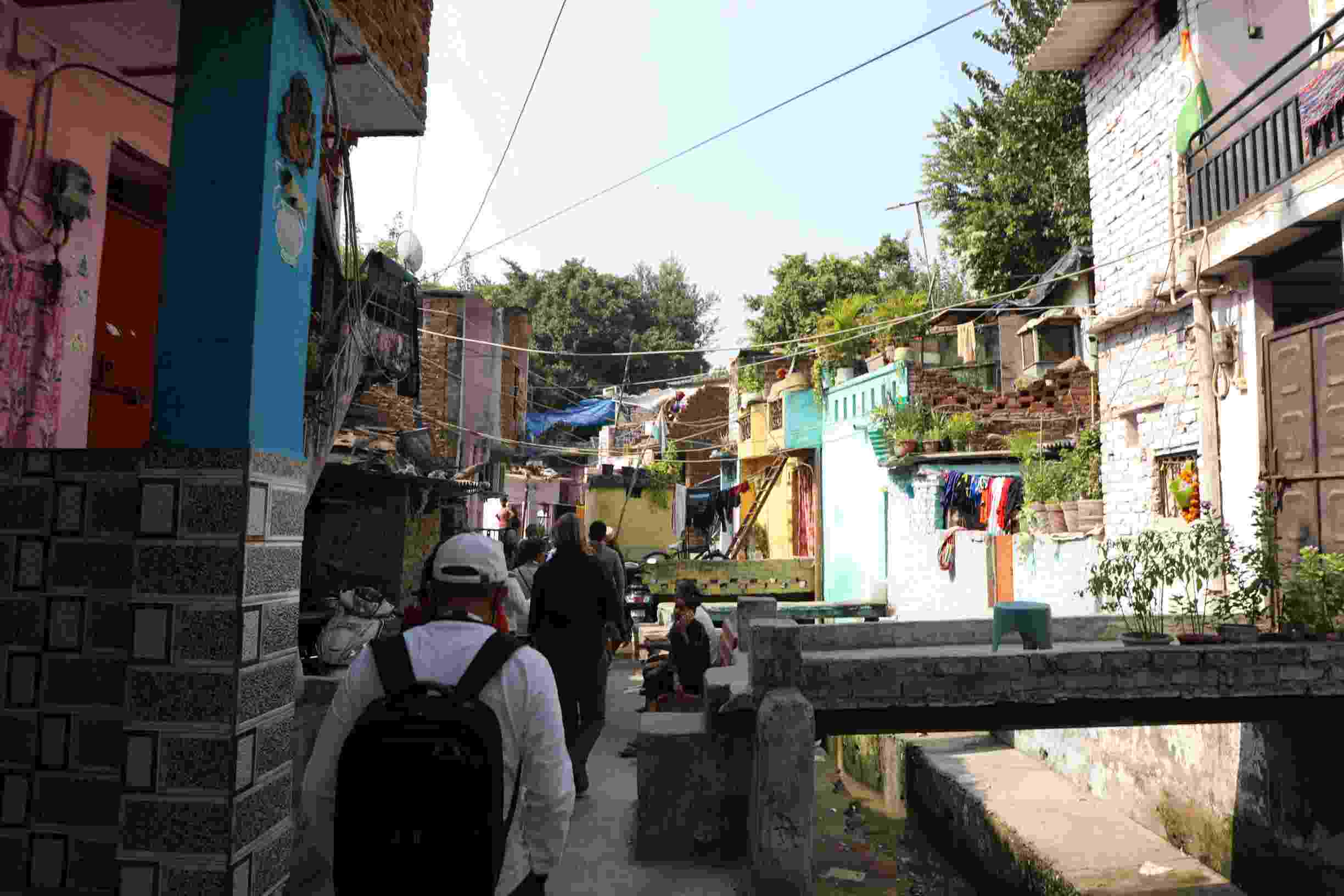

The team visiting the informal settlements
The team was led on a guided tour through each of the settlements, offering an important opportunity to witness living conditions within the areas, and to hear directly from the communities about the challenges they face. “The visit to the Barapullah settlements was an enriching and hard experience. Their realities are unfortunately not very different from some communities in Colombia. The fact that these settlements are considered illegal contributes to their dismissal as part of the city population, invisibilizing their existence and increasing problems. A process where communities become strengthened would allow them to claim and influence regulations, norms, and recognition of their human rights and right to a dignified life.” - Juliana, Universidad del Cauca, and Andrés, Universidad del Valle.
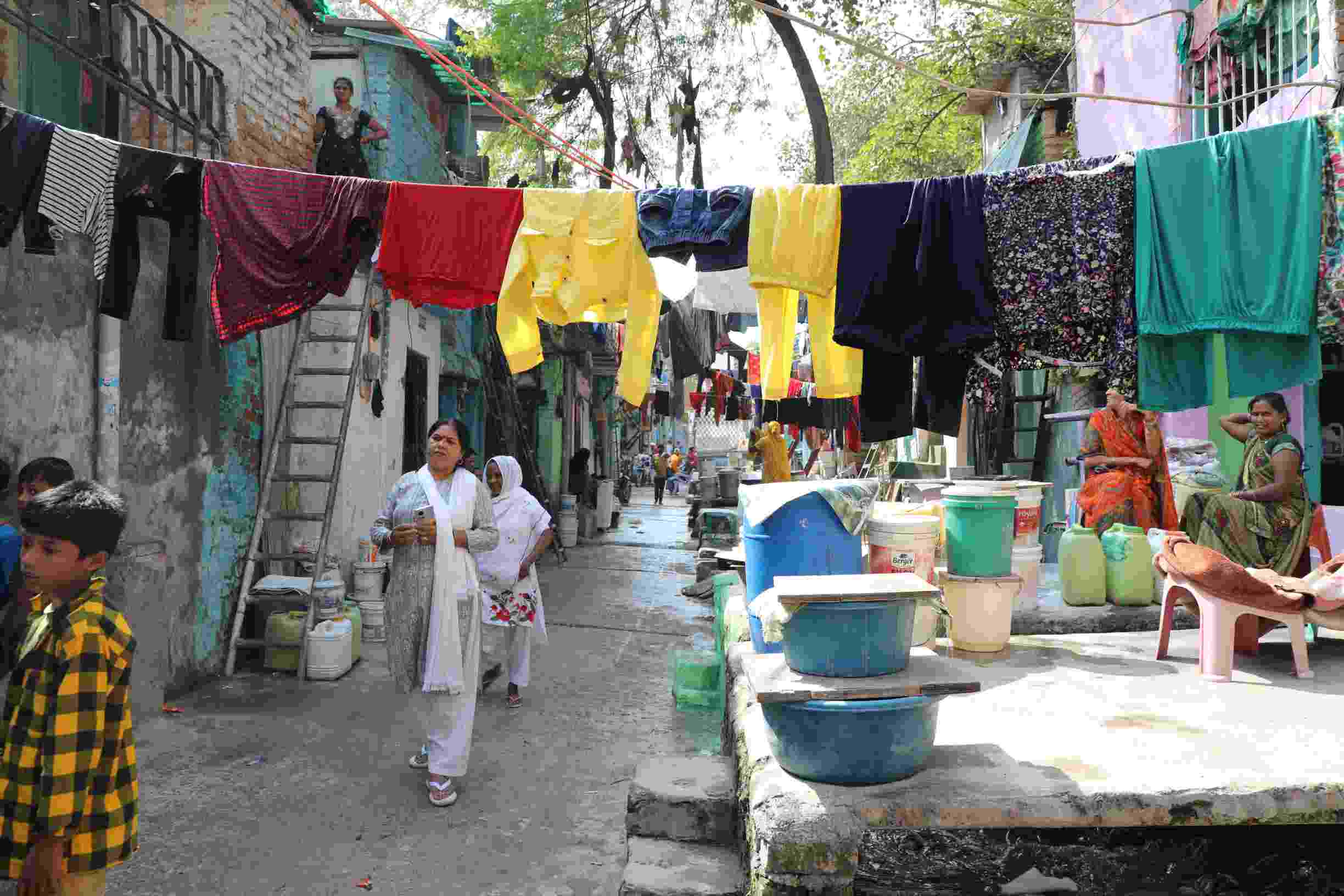

Examples of shared community spaces
Despite the hardships they face, these communities are also a source of great inspiration and hope. “One of the unexpected takeaways from our visit to the Hanuman Camp was the strong sense of community resilience and neighbourhood cohesion, especially in the face of adverse weather conditions. The community works together to sort and sell solid waste materials collected across Delhi, providing paid roles for both women and men living in the settlement. Over the years, women’s groups have helped to build agency for women in the community, promoting safe WASH practices and providing a safe space for those most vulnerable.” - Anna Murgatroyd, University of Oxford.
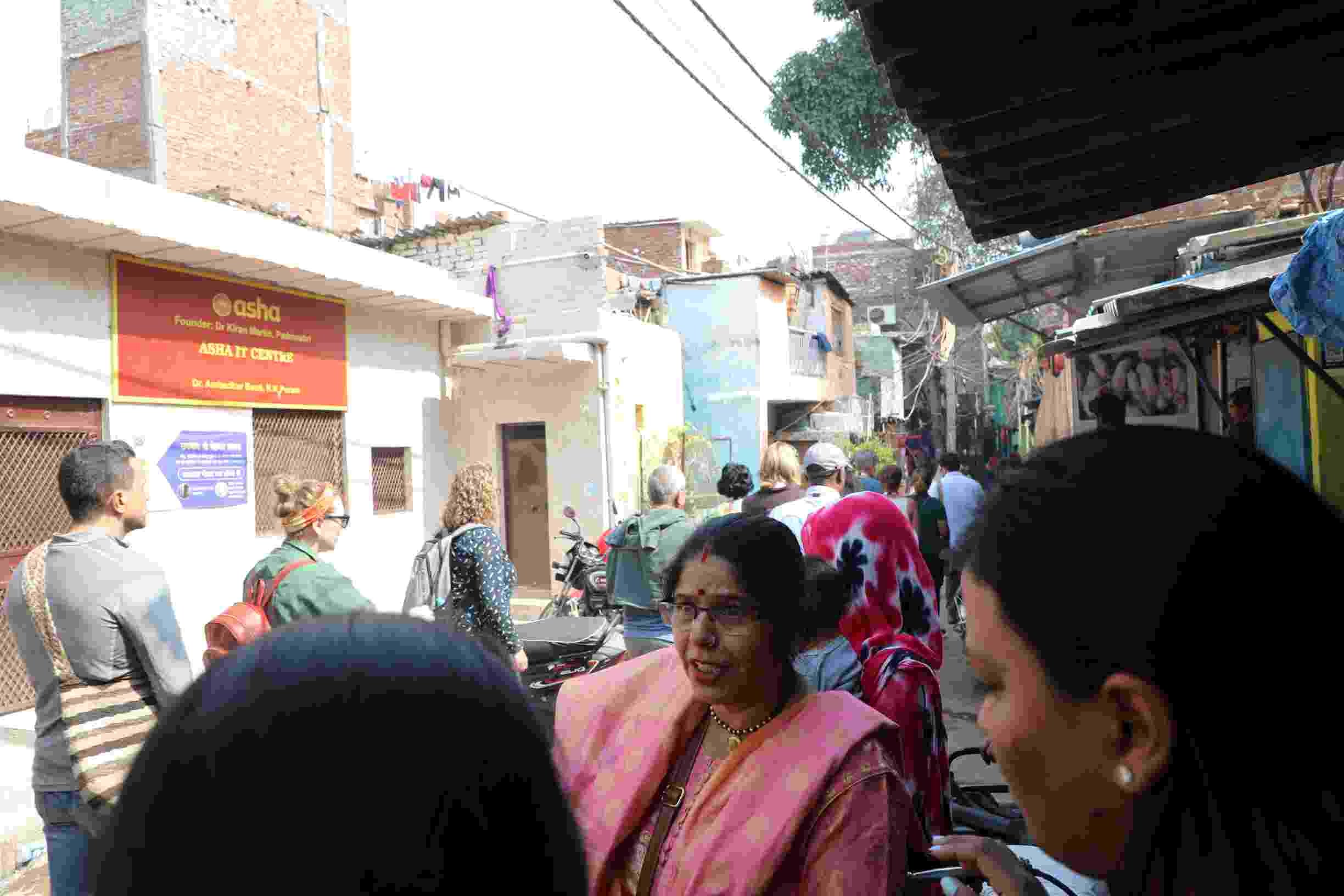

One of the women explains the challenges in the camp
“It’s inspiring to see the community carry themselves with resilience, positivity and determination to create a better future. Female members of the community seemed to have a high awareness of the issues they’re facing, and with a strong sense of community, they were an integral force in seeking to improve quality of life. Both as part of the Malaysia Collaboratory and in my work with underprivileged communities, having this direct conversation with communities of a different cultural background provided new perspectives and stretched my thinking on the issues that communities of both countries might share.” - Kwa Yee Chu, NUMed
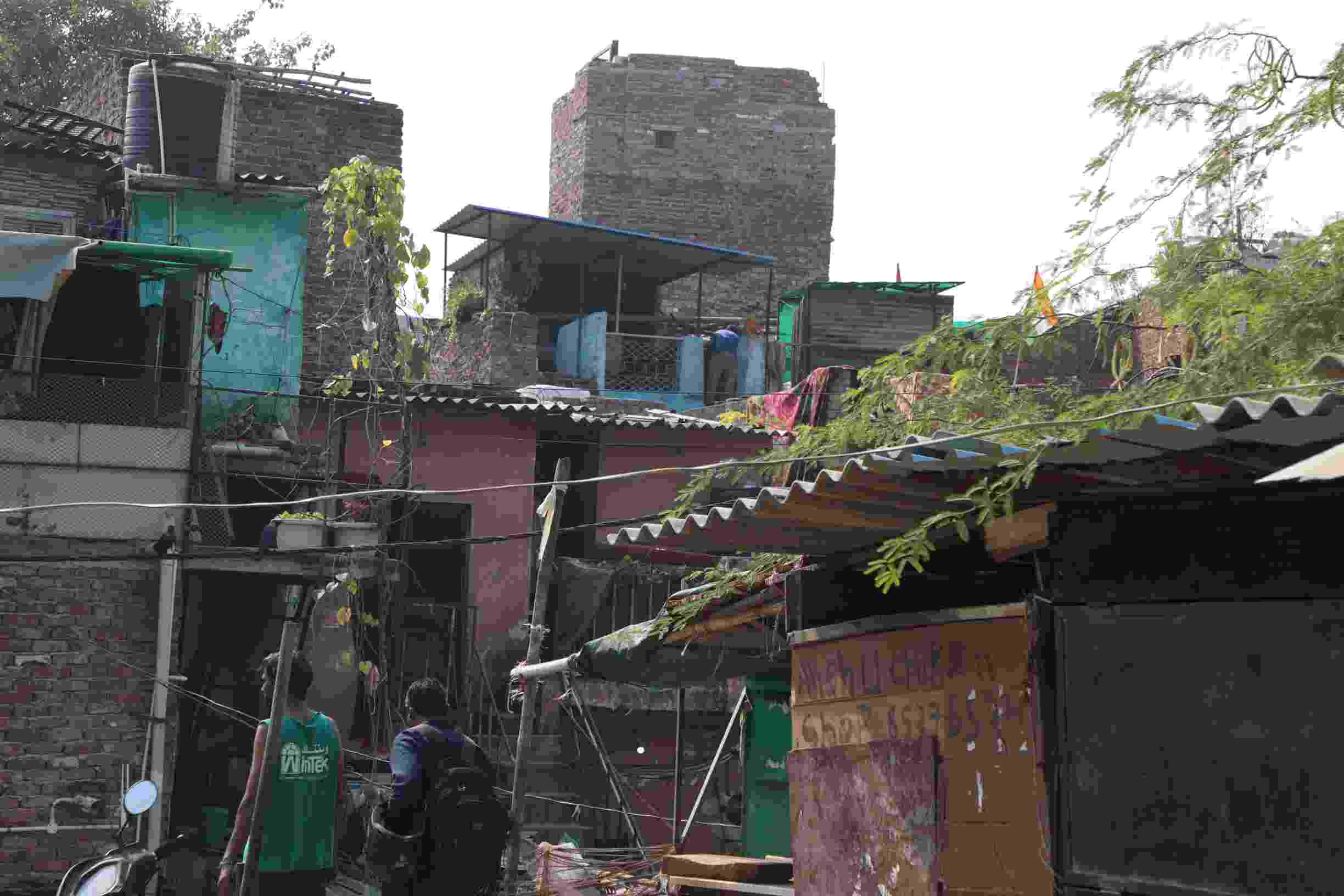

Communities face both structural and social challenges
Residents living in disadvantaged and marginalised settings know what needs to change. “We empower individuals to actively contribute to the identification of problems, participate in decision-making processes, and co-create solutions using participatory learning and action. While this approach taps into local knowledge and insights into people’s lived experiences (which often gets overlooked in top-down approaches), direct engagement establishes a foundation of trust and fosters a sense of ownership in the community to lead the change, enhancing the relevance and sustainability of interventions.” - Pranav Singh, Janya Collective.
“It is essential to hear directly from communities and understand the challenges they face to effectively engage with them. By actively listening to the diverse voices within a community, we can gain valuable understanding of their needs, priorities, and aspirations, allowing us to gain insight about their unique circumstances. This approach also ensures research and practice are guided by diverse community groups’ knowledge and experiences, leading to more well-informed decisions and policy recommendations.” - Likimyelesh Nigussie, IWMI.
Working directly with both communities and organisations like Janya Collective is crucial to a systems approach and tackling water security. An inclusive approach, where all voices are heard, leads to tailored, effective, utilised solutions and interventions, enabling more sustainable impact for both human and ecosystem health and wellbeing. As we move into our final phase, our entire team is committed to empowering all our stakeholders, both now, and beyond the duration of the Hub.



